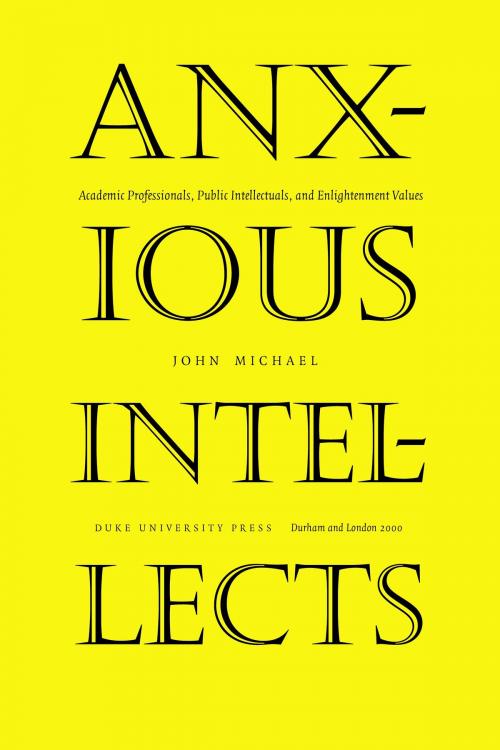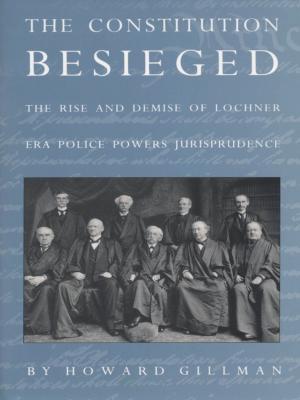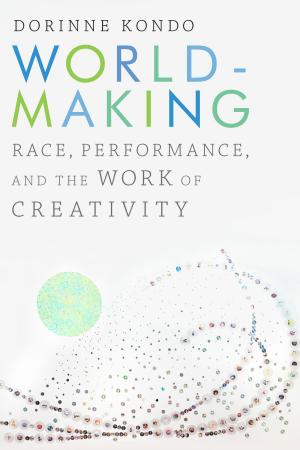Anxious Intellects
Academic Professionals, Public Intellectuals, and Enlightenment Values
Nonfiction, Reference & Language, Education & Teaching, Higher Education, Social & Cultural Studies, Social Science, Sociology| Author: | John Michael | ISBN: | 9780822381396 |
| Publisher: | Duke University Press | Publication: | April 24, 2000 |
| Imprint: | Duke University Press Books | Language: | English |
| Author: | John Michael |
| ISBN: | 9780822381396 |
| Publisher: | Duke University Press |
| Publication: | April 24, 2000 |
| Imprint: | Duke University Press Books |
| Language: | English |
Intellectuals occupy a paradoxical position in contemporary American culture as they struggle both to maintain their critical independence and to connect to the larger society. In Anxious Intellects John Michael discusses how critics from the right and the left have conceived of the intellectual’s role in a pluralized society, weighing intellectual authority against public democracy, universal against particularistic standards, and criticism against the respect of popular movements. Michael asserts that these Enlightenment-born issues, although not “resolvable,” are the very grounds from which real intellectual work must proceed.
As part of his investigation of intellectuals’ self-conceptions and their roles in society, Michael concentrates on several well-known contemporary African American intellectuals, including Henry Louis Gates Jr. and Cornel West. To illuminate public debates over pedagogy and the role of university, he turns to the work of Todd Gitlin, Michael Bérubé, and Allan Bloom. Stanley Fish’s pragmatic tome, Doing What Comes Naturally, along with a juxtaposition of Fredric Jameson and Samuel Huntington’s work, proves fertile ground for Michael’s argument that democratic politics without intellectuals is not possible. In the second half of Anxious Intellects, Michael relies on three popular conceptions of the intellectual—as critic, scientist, and professional—to discuss the work of scholars Constance Penley, Henry Jenkins, the celebrated physicist Stephen Hawking, and others, insisting that ambivalence, anxiety, projection, identification, hybridity, and various forms of psychosocial complexity constitute the real meaning of Enlightenment intellectuality. As a new and refreshing contribution to the recently emergent culture and science wars, Michael’s take on contemporary intellectuals and their place in society will enliven and redirect these ongoing debates.
Intellectuals occupy a paradoxical position in contemporary American culture as they struggle both to maintain their critical independence and to connect to the larger society. In Anxious Intellects John Michael discusses how critics from the right and the left have conceived of the intellectual’s role in a pluralized society, weighing intellectual authority against public democracy, universal against particularistic standards, and criticism against the respect of popular movements. Michael asserts that these Enlightenment-born issues, although not “resolvable,” are the very grounds from which real intellectual work must proceed.
As part of his investigation of intellectuals’ self-conceptions and their roles in society, Michael concentrates on several well-known contemporary African American intellectuals, including Henry Louis Gates Jr. and Cornel West. To illuminate public debates over pedagogy and the role of university, he turns to the work of Todd Gitlin, Michael Bérubé, and Allan Bloom. Stanley Fish’s pragmatic tome, Doing What Comes Naturally, along with a juxtaposition of Fredric Jameson and Samuel Huntington’s work, proves fertile ground for Michael’s argument that democratic politics without intellectuals is not possible. In the second half of Anxious Intellects, Michael relies on three popular conceptions of the intellectual—as critic, scientist, and professional—to discuss the work of scholars Constance Penley, Henry Jenkins, the celebrated physicist Stephen Hawking, and others, insisting that ambivalence, anxiety, projection, identification, hybridity, and various forms of psychosocial complexity constitute the real meaning of Enlightenment intellectuality. As a new and refreshing contribution to the recently emergent culture and science wars, Michael’s take on contemporary intellectuals and their place in society will enliven and redirect these ongoing debates.















